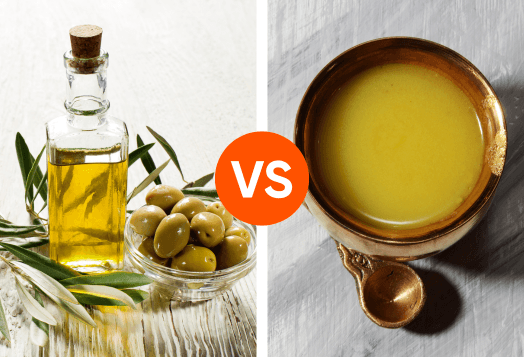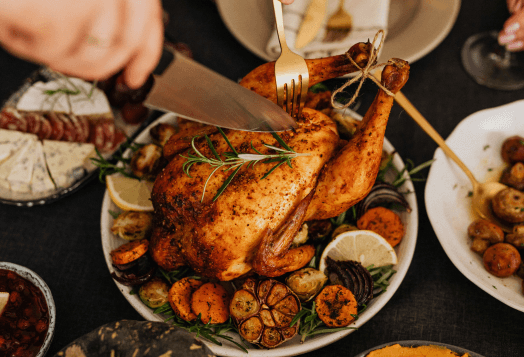Ever noticed how a comforting meal of dal-chawal can lift your spirits after a long day? What we eat plays an important role in how we feel emotionally. Incorporating mood boosting foods into our daily meals can enhance our mental well-being and bring a smile to our faces. Let's explore how certain nutrients and foods can naturally uplift our mood and support those ‘happy hormones.’

The Recipe for a Good Mood
Our brains and bodies thrive on a variety of nutrients that keep us feeling cheerful and balanced. Here's a simple guide to some key players:
Vitamin D: Often called the ‘sunshine vitamin,’ Vitamin D is essential for mood regulation. While soaking up some morning sun is a great way to get it, foods like fatty fish (think salmon or mackerel) and fortified dairy products are excellent sources. In India, incorporating dishes like grilled fish or a glass of fortified milk can be both delicious and beneficial.
Omega-3 Fatty Acids: These healthy fats are crucial for brain health. Found abundantly in fish like salmon, as well as in plant sources like walnuts and chia seeds, omega-3s help maintain mood stability. A handful of walnuts as an evening snack or adding chia seeds to your morning smoothie can be simple ways to include them in your diet.
Complex Carbohydrates: Unlike simple carbs that can cause energy crashes, complex carbohydrates provide a steady release of energy and aid in the production of serotonin, the ‘feel-good’ neurotransmitter. Whole grains such as oats, brown rice, and millets are excellent choices. Starting your day with a bowl of oatmeal or enjoying a hearty millet khichdi for lunch can keep those spirits high.
Nutrient Sources
Nutrient | Food Sources |
Vitamin D | Fatty Fish, Fortified Dairy |
Omega-3 Fatty Acids | Salmon, Walnuts, Chia Seeds |
Complex Carbohydrates | Whole Grains (Oats, Brown Rice, Millets) |
Bad Mood? Let's Fix It
Everyone has those days when things feel a bit off. During such times, certain nutrients can come to our rescue:
Vitamin B6: This vitamin plays a pivotal role in producing neurotransmitters that influence mood. Foods rich in Vitamin B6 include bananas, potatoes, and chicken. A comforting bowl of chicken curry with potatoes or a simple banana smoothie can be both tasty and mood-lifting.
Magnesium: Known as nature's relaxant, magnesium helps combat stress and anxiety. Dark chocolate, spinach, and almonds are excellent sources. Indulging in a piece of dark chocolate or preparing a palak (spinach) sabzi can be delightful ways to boost your magnesium intake.
Probiotics: Our gut health is closely linked to our mental health. Fermented foods like yoghurt and traditional Indian pickles (achar) are rich in probiotics that support a healthy gut flora. Including a serving of dahi (yoghurt) with your meals or enjoying some homemade pickles can be both delicious and beneficial.
Nutrient Sources
Nutrient | Food Sources |
Vitamin B6 | Bananas, Potatoes, Chicken |
Magnesium | Dark Chocolate, Spinach, Almonds |
Probiotics | Yogurt, Traditional Indian Pickles |
Disturbed Mood? Find Balance
When feeling restless or agitated, the following nutrients can help restore calm:
Tryptophan: An essential amino acid, tryptophan is a precursor to serotonin. Foods like eggs, dairy products, and legumes are rich in tryptophan. A comforting bowl of rajma (kidney bean curry) or a simple egg bhurji (scramble) can be soothing choices
- Iron: Iron deficiency can lead to fatigue and mood disturbances. Incorporate iron-rich foods like spinach, lentils, and red meat into your diet. A hearty serving of palak paneer or a mutton curry can be both nourishing and uplifting.
- Folate: Also known as Vitamin B9, folate is essential for brain function and emotional well-being. Leafy greens, legumes, and citrus fruits are good sources. A tangy lentil soup or a fresh citrus salad can add a folate boost to your meals.
Nutrient Sources
Nutrient | Food Sources |
Tryptophan | Eggs, Dairy Products, Legumes |
Iron | Spinach, Lentils, Red Meat |
Folate | Leafy Greens, Legumes, Citrus Fruits |
Angry Mood? Cool Down
Anger and irritability can be mitigated by including the following in your diet:
Vitamin C: This antioxidant helps reduce stress hormones. Citrus fruits like oranges, lemons and vegetables like bell peppers are rich sources. A refreshing glass of nimbu pani (lemon water) or a colourful capsicum stir-fry can be both cooling and calming.
Potassium: Essential for maintaining blood pressure and reducing stress, potassium-rich foods include bananas and avocados. A banana smoothie or an avocado salad can be quick fixes to soothe the mind.
GABA (Gamma-Aminobutyric Acid): This neurotransmitter has a calming effect on the nervous system. Fermented foods like kimchi, miso, and certain yogurts contain natural GABA. Including homemade curd or miso soup in meals can be beneficial.
Nutrient Sources
Nutrient | Food Sources |
Vitamin C | Citrus Fruits, Bell Peppers |
Potassium | Bananas, Avocados |
GABA | Fermented Foods (Kimchi, Miso, Yogurt) |
Sleep and Mood
A good night's sleep is essential for mental health. Foods rich in melatonin (like cherries and walnuts) and magnesium (like almonds and spinach) can improve sleep quality. Herbal teas such as chamomile or ashwagandha-infused milk can also promote relaxation.
The Connection Between Water and Mood
Dehydration can lead to fatigue, irritability, and poor concentration. Water-rich foods like watermelon, cucumber, and coconut water help maintain hydration. Electrolytes like sodium and potassium (found in coconut water and bananas) are vital for overall well-being.
Simple Indian Recipes for a Great Mood
Here are some easy-to-make Indian recipes that boost mood and health.
1. Moong Dal Khichdi (Comforting and Nutrient-Rich)
A light and easily digestible dish, moong dal khichdi is packed with complex carbohydrates and magnesium, making it great for relaxation.
Ingredients:
½ cup moong dal (split green gram)
½ cup rice
1 teaspoon ghee
½ teaspoon cumin seeds
1 pinch turmeric powder
2 cups water
Salt to taste
Chopped coriander for garnish
Method:
Rinse the dal and rice well.
In a pressure cooker, heat ghee, add cumin seeds, and let them splutter.
Add turmeric powder, rice, and dal. Stir well.
Add water, salt, and cook for 3-4 whistles.
Garnish with coriander and serve warm.
2. Ragi (Finger Millet) Porridge (Mood Boosting and Energy-Giving)
Ragi is rich in complex carbohydrates, iron, and calcium, helping in mood stability and energy levels.
Ingredients:
2 tablespoons ragi flour
1 cup water or milk
1 teaspoon jaggery or honey
½ teaspoon cardamom powder
Method:
Mix ragi flour with a little water to form a smooth paste.
Heat the remaining water or milk in a pan and add the ragi paste.
Stir continuously on low heat to avoid lumps.
Add jaggery/honey and cardamom powder for flavour.
Serve warm as a nutritious breakfast.
3. Masoor Dal Soup (Rich in Folate and Iron for Brain Health)
Masoor dal is packed with folate and iron, supporting cognitive function and mood regulation.
Ingredients:
½ cup masoor dal (red lentils)
2 cups water
1 tomato (chopped)
½ teaspoon turmeric powder
1 teaspoon ghee
½ teaspoon cumin seeds
Salt and pepper to taste
Method:
Rinse masoor dal and cook with water, tomatoes, and turmeric until soft.
Blend for a smooth consistency if desired.
Heat ghee in a pan, add cumin seeds, and pour over the soup.
Season with salt and pepper and serve warm.
4. More Easy Combinations
Oat and Banana Porridge: Combine oats, banana, and a splash of milk for a serotonin-boosting breakfast.
Yogurt and Honey Parfait: Layer yogurt with honey and nuts for a probiotic-rich snack that promotes gut health and food for happy hormones.
Disclaimer: This information provided is intended for general informational purposes only. It is not a substitute for professional advice or guidance. For personalised recommendations or specific concerns, please consult a certified nutritionist.




